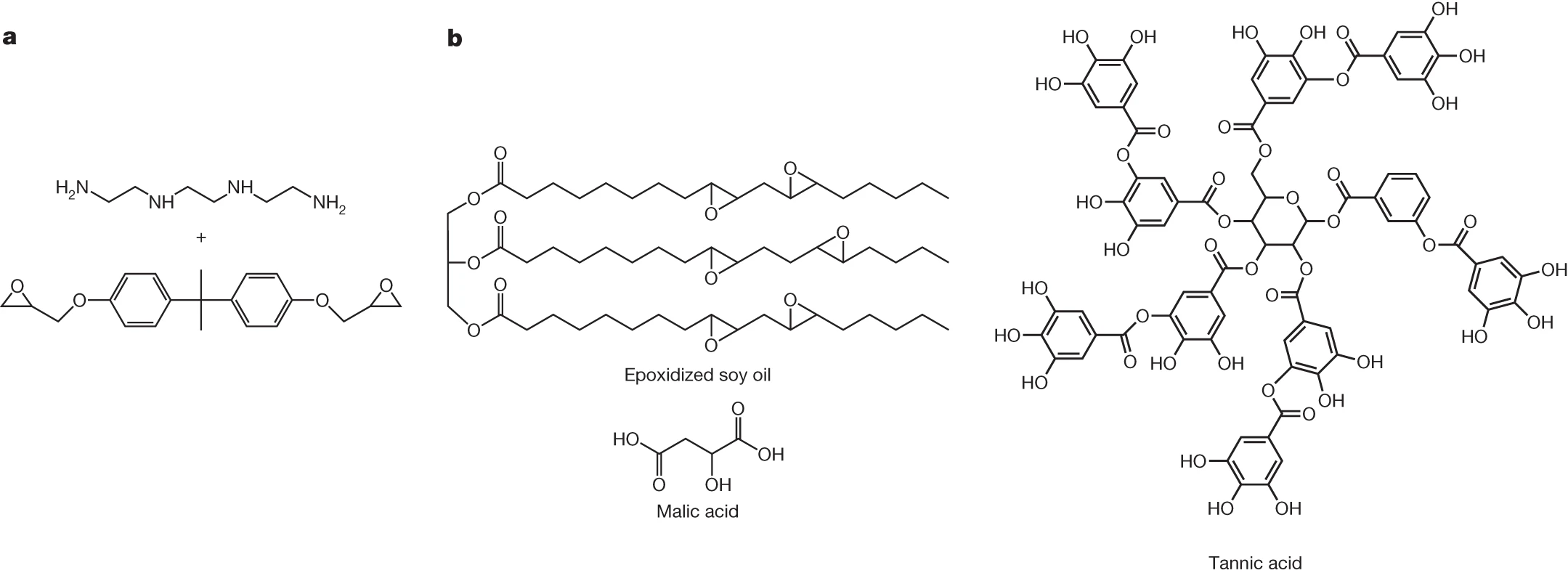65 Polymer Information
Kinkead Crotts and Rosie Fisher

Classic epoxies are made up “multifunctional epoxy-containing compounds, such as bisphenol A diglycidyl ether, with polyamines, including triethylenetetramine” which react to form “extensively cross-linked matrices” [2]. However, these traditional epoxies are not degradable and the polymer inputs (shown in Figure 1a above) are often sourced from petroleum.

Therefore, Wilker and his team looked to develop an alternate epoxy with bio-based polymers. They started with epoxidized soy oil as it is widely and cheaply available, but epoxidized soy oil alone cannot replace bisphenol A diglycidyl ether as it would only produce a viscous oil when reacted with polyamines. Thus, additional biomimicry of muscle adhesives was used to determine that simple polymers with catechol pendant groups performed similarly to glue formed from muscle proteins. Therefore, catechol-like chemistry was incorporated to epoxidized soy oil to create a functional adhesive. Malic acid and Tannic Acid sourced from corn added the catechol-like chemistry [2]. The components of this adhesive are shown in Figure 2b.

